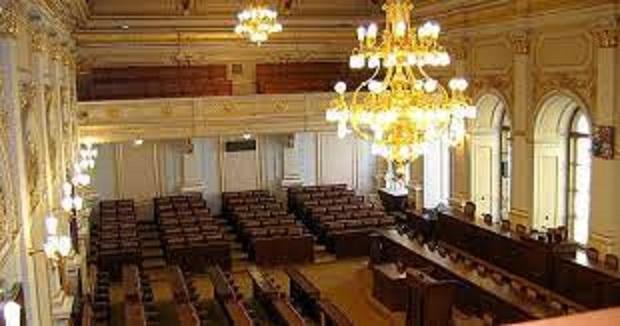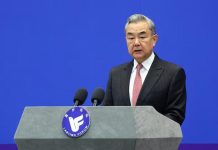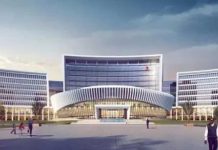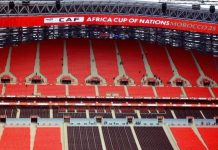Africa-Press – Mauritius. The presidential regime will increase the disunity, silent and tolerant, of the Mauritian people and become an additional obstacle to the formation of the Mauritian nation
Should we refrain from calling out to the political parties, the Labor Party, the MMM, the MSM, and the PMSD, and telling them that they are not doing their duty towards the people of Mauritius?
Some say you have the leaders and the parties you deserve. Alas! In the eyes of voters, and especially those who are called to vote for the very first time in their lives, after the budget next year, politicians appear less and less worthy of trust and respect.
So, I am saying that political parties should be at the forefront of thinking, discussing the major problems of our society. The themes are not lacking. There are, for example, the stranglehold on Le Morne, the public passages between the private hunted, the edges of rivers, and other state lands, by individuals; and also the closure of coastal roads to citizens to turn them into hotels, the guaranteed minimum wage for those left behind in our society, the national position to be adopted vis-à-vis the United States and Great Britain on the Chagos. The Parties are expected to function as a laboratory for collective reflection, which brings ideas to enlighten the population and, also, to make proposals for the conduct of state affairs.
At the moment, the Mauritian population is watching, helpless and disgusted, as an indecent spectacle of thieves who share the booty before the crime. And what does this booty consist of? We can guess from the half-words, which hide the truth, that this is a fundamental constitutional reform: A Second Republic.
Again, everyone is talking about it, the press, political commentators, but no one knows what it is exactly. And those first concerned are careful not to give explanations, as if the Mauritian people were worth nothing but contempt: they are only fools incapable of understanding.
But let us point this out right away: thanks to free education, there are no longer illiterates in Mauritius, and in every family, whether urban or rural or of ploughmen, there are intellectuals, graduates, who think , think, and even if they say nothing, for the moment, get ready to act when the time comes! So, that is to say: Watch out!
Let us come to this mysterious Second Republic. Who wants it? The people ? No one has so far heard that this will be a good thing for Mauritians who will enjoy better governance of their country. At the moment, the Second Republic serves as the backdrop for the discussions, which are taking place in the deepest opacity, and which revolve around a division of powers between the President and Prime Minister of a future presidential regime.
President or Prime Minister?
It was also questioned that a Prime Minister going to an international conference or on a visit of State, has neither the treatment nor the prestige reserved to the head of another State who would carry, him, the title of President. . He refuses to be treated like an inferior. It’s like saying that Narendra Modi would feel inferior in the presence of Xi Jingping, because one carries the title of Prime Minister and the other, that of President. Would Prime Minister Cameron feel inferior to President Hollande?
Lets go ! It’s the man who makes the man, not the title! Going to the status of President for such a trivial reason, it makes you smile …
More powers for the Prime Minister?
It has been said or whispered that the Prime Minister needs more powers. To do what ? What would he do that he couldn’t do with his powers present? What more would he like to do with increased powers?
These questions are of utmost importance, not just for today, but because it concerns the future of the country and concerns all citizens.
These fundamental questions deserve clear and precise answers. It is not just the people of today who care, it is also future generations of Mauritians who will be positively or negatively affected by the decisions we make today. So one cannot treat these issues lightly.
Let us push the reflection further. As a simple citizen of the country, I say that the post of Prime Minister gives the holder already too many powers. Warning! I am not making it a personal matter, for as early as 1991 I drew the attention of my compatriots to the immense powers a prime minister has and which almost makes him a monarch.
In two articles: Anerood Jugnauth and Exercise of Power and Anerood Jugnauth Against the Constitution, I denounced in a newspaper the concentration of a multitude of powers in the hands of one person. Thus, with these powers, the Prime Minister can favor or terrorize individuals, build or destroy fortunes, or favor individuals, or enrich them, overnight.
These powers include the granting of titles, honors and honors, with no guarantee that only those who deserve them will get them and those who don’t deserve them will not get them; the granting of Mauritian nationality to foreigners, to ensure that not the only billionaires who can invest obtain it at unparalleled speed; the distribution of state lands to individuals for unknown or unavowable reasons; the distribution of ambassadorial posts without the existence of a bipartite commission, as in the US, to ensure that the nominees are well qualified, honorable, worthy and able to defend the interests of the country, and not of the proteges, rodère-boutte, placed to live at the hooks of the State.
The solution to abuse or privilege in these sectors would be to go through recommendation or control committees, on which sit men of integrity and above all suspicion. There are so many admirable compatriots, who are deprived of the accolades they deserve, but they do not get them, simply because they are worthy and non-seekers … Where is our much-vaunted meritocracy policy?
At this stage, it is appropriate to appeal to the parties and Members of Parliament, who are just as indifferent to their duty as they are to their voters. Do they have the courage to come forward to explain to the people of Mauritius the nature of the additional powers they want to give to the Prime Minister or to a President of a presidential regime, still a phantom?
This is more serious than the question of the PM status to be given to the President, which makes you smile … No! Members must be careful! More powers are likely to lead the country towards more loss of popular control and certainly towards dictatorship! The very fact of not telling the people anything about what concerns them today is already dictatorship by parties, or more precisely, by party leaders!
No, my arguments against the presidential regime statute for Mauritius are of a different order.
Let’s say it, without going through four paths. The presidential regime will increase the disunity, silent and tolerant, of the Mauritian people and become an additional obstacle to the formation of the Mauritian nation. Why?
First, Mauritius is not a nation state. Nation states like Italy and Germany emerged around the middle of the 19th century. Garibaldi and Mazzini took the different countries or regions that spoke Italian and brought them together into one state. For his part, Bismarck united the German-speaking Länder and, thus, he formed Germany. He did not have time to bring in Austria, which Hitler wanted to do, without success. As a result, the nation-state unites peoples speaking the same language and sharing the same culture.
So, it is obvious that Mauritius is not a Nation-State, with all its ethnicities, coming from all parts of the world, speaking a dozen languages, crossed by several cultures and celebrating religious festivals in Europe, from Asia and the West. Of course, with these inescapable data, Mauritius is not a nation-state hence our headaches and our representation problems in Parliament, but that is another subject.
Now let’s see what the Presidential Regime has done in these nation, monolingual, mono-cultural states. In the history of the West, it is individuals and think tanks who have risen up to oppose the Pope and the Emperor over control of the West since 476 AD until the fall of the Roman Empire ; hence the birth of the Opposition, in different forms: religious, philosophical, political, and economic, which ended up winning a great victory in 1789 for human rights. But there is the Church and the nobility who resisted the erosion of their powers, hence the emergence in the West of groups, of parties to defend the interests of the left behind, the voiceless. And so, there is the creation of the possibility for others, minorities and opponents, to be heard, hence the birth of parties, whose existence in Western countries are the illustrations of democracy.
The flip side of this democracy is that it allows the parties in collusion to constitute themselves as a class apart, and to come to an understanding among themselves, at the back of the people, behaving like an all-powerful clique, which shares the wealth of the country among its members, thus constituting the partocracy.
Over time, positions freeze and in most countries we find ourselves faced with endless challenges. Society remains divided into two irreconcilable groups, parties, or parties; but these will not launch into fratricidal wars which are due to differences in cultures or languages, as in countries with different cultures, languages and ethnic groups, within their borders.
Let us come back to Mauritian society. Since independence, we have had an electoral system whose weaknesses I have demonstrated and which I hold responsible for maintaining and constitutionalizing communitarianism, our “communalism”. Indeed, the fathers of our Constitution saw the danger of a 60-0 and never believed it could happen. We know the rest, the slippage, which led to the violation of democracy and human rights by the Mauritian Parliament in 1982.
Then, we became a Republic with a President who replaced the Governor, who remains a symbol and does not have the powers of a President of the presidential regime, elected by the people. This President is appointed, he is above the parties, the fray; he is a symbol, guardian of institutions and guarantor of the stability of the institutions of the Republic and the country!
It is whispered that in the presidential regime under discussion, the President of Mauritius would be elected by the people. This means that this elected President of the country would be a politician, a man of a party, whose first duties will be towards his supporters, the voters of his party. The country is therefore divided between those who are for and those who are against the President. I demonstrated above that in the two-party system, there is never any reconciliation, always knives drawn, hatred and settling of scores, endless violence …
In this context, where any subject touching on ethnicities, languages and cultures, can easily go wrong and ignite the spirits, will those who will not have voted for this elected President trust him to appease the spirits? This would be possible in a nation state with one language and one culture, but certainly not in a multiethnic and multicultural country like Mauritius. One has only to look at other countries of two or more ethnicities to understand the harm an elected President does in this kind of context: I quote Lebanon and Sri Lanka, among others.
So, in this kind of context, it is necessary that the ethnic groups and / or the opponents who will not have voted for this elected President can have someone to turn to: a trustworthy man, above all suspicion. , a non-communalist, non-sectarian patriot, man of no party, a symbolic man who alone can be the guarantor of peace, stability and harmony in our country. It is the duty of all of us to think carefully before rushing into what might be a chasm. And then it will be too late.
Already, during these discussions which transpire about our presidential system, we know that the discussions are bitter because the appetites of the ones and the others are ferocious. In this context, allow me to mention just one theme, among many others, which threatens to destabilize the country: In this presidential regime, who will decide the country’s foreign policy, the President or the Prime Minister? The answer is not as simple as you think. Trying to answer them is already realizing the risks of destabilization that a single bone of contention could cause …
In these circumstances, can we expect to give the Mauritian people who deserve it a Constitution that guarantees them peace in this country?
I stop here and conclude. Only a President, who is not a party leader, can have the confidence of all Mauritians, of all ethnicities. Remote and above political quarrels, it can inspire confidence and a feeling of security in all. The President of Mauritius must, like the President of India, remain a Symbol. This is the only way to guarantee Harmony and Peace in our country.
For More News And Analysis About Mauritius Follow Africa-Press







